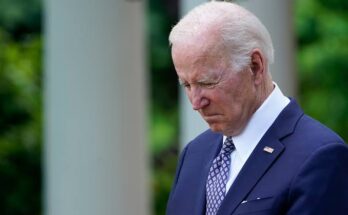Sixty-five detainees have been released from Afghanistan’s high security Bagram detention centre, a move condemned by the US as “deeply regrettable”.
The US embassy in Kabul said some of those released were responsible for the deaths of Afghan civilians, and Afghan and coalition troops.
Kabul, which took over control of Bagram last year, insists there is not enough evidence against the detainees.
The detainees began to emerge from the prison gates in groups of half a dozen or so on Thursday morning, the BBC’s David Loyn in Kabul reports.
Some were laughing and smiling as they boarded a bus and taxis to leave the facility, which is now called the Parwan Detention Facility and is about 45km (28 miles) north of Kabul.
Our correspondent spoke to one of the freed men, Nurullah, who US forces accuse of being a Taliban commander responsible for operations that resulted in the death of a US soldier in Logar province.
Sitting in a cafe, eating his first meal in freedom since his capture last March, Nurullah denied the allegation, saying he had been training as a builder.
In a statement, the US embassy said: “The Government of Afghanistan’s decision to release 65 detainees from the Parwan Detention Center is deeply regrettable.”
It said: “We requested a thorough review of each case. Instead, the evidence against them was never seriously considered.”
Washington says one of the men was captured after being wounded during an attack on Afghan forces.
Others were reportedly arrested carrying weapons including shotguns, assault rifles and rocket-propelled grenade-launchers and bomb-making equipment.
Inmate Mohibullah told the BBC he was innocent and had not been informed of the evidence against him
The embassy said: “The Afghan government bears responsibility for the results of its decision.”
The US forces in Afghanistan said that some of the other prisoners released since the Afghans took over control of the prison had “already returned to the fight. Additional released detainees may continue to fill the ranks of the insurgency”.
The releases mark a new low in relations between Afghanistan and the US forces in the country, our correspondent says. He adds that the decision is a political one taken personally by President Karzai.
The facility, which houses mainly Taliban and other insurgents captured by Western military forces, has been at the centre of a number of prisoner abuse allegations.
The BBC’s Yalda Hakim was recently allowed unprecedented access.
She says that, compared to some other Afghan jails, this is state of the art, but some of the inmates have been held for years without trial.
One 16-year-old inmate, Mohibullah, told her he was just a farmer from Helmand and had not been informed of the evidence against him.
He said: “No-one is asking about us. I have spent a year far from my mother and father. Why? What is the reason?”
The US dossier on him says he was arrested with a shotgun and his property tested positive for four types of explosives.
He was also “biometrically matched to a memory card, which contained over 200 Taliban propaganda martyr songs and videos” and failed a polygraph test on involvement with the Taliban.
A US dossier includes information from their mobile phones, details of interviews and pictures of bomb-making equipment. The Afghan authorities say there is not enough evidence to justify detaining them. But according to the US:
After our correspondent’s visit, she spoke to President Karzai, who told her that the facility was a “Taliban-making factory”, where innocent people were
“turned against their own country, against their own government”.
He added: “The very presence of this… prison is against the Afghan constitution, against all Afghan laws and against the sovereignty of this country.”
Mr Karzai denied US claims that the released prisoners had blood on their hands.
“They always say that. How else would they have an excuse to keep someone in the prison but to accuse them of something? Our judicial bodies, our attorney general, our judiciary, our intelligence have nothing on them.”
However, the BBC’s Bilal Sarwary, in Kabul, says that Afghan military officials have privately admitted that some of these men were involved in militant attacks, and there has been a lot of internal debate within the government about these releases.
According to the UN Security Council’s mandate, the US-led international military force in Afghanistan is scheduled to hand over all security duties to Afghan forces before its full withdrawal by the end of 2014.
However President Karzai has refused to sign a security deal with Washington that would set the final framework for the withdrawal.
The Security and Defence Co-operation Agreement, if signed, could see some 10,000 US troops stay in Afghanistan for a number of years.



